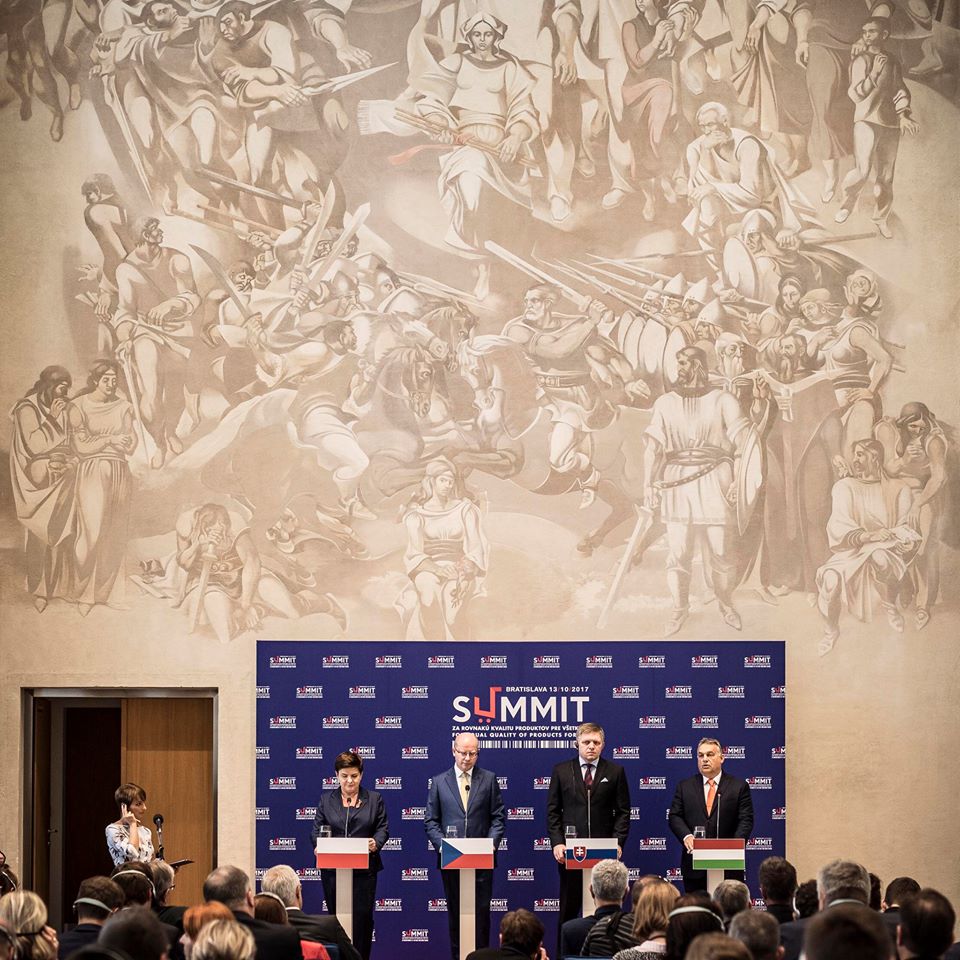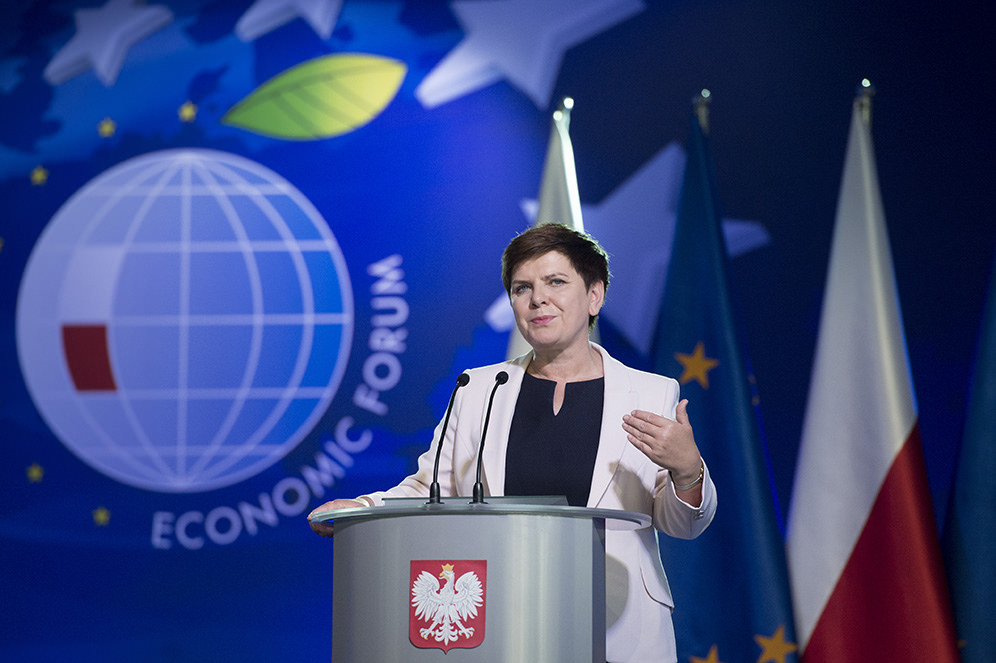Central Europe – The Visegrád Group met three times in less than a week. On Monday, October 9, in Warsaw, along with the Baltic countries, Romania and Bulgaria, on Wednesday, October 11, in Budapest, with representatives of the Western Balkans, where the V4 testified its support for their EU membership. Friday, October 13, the V4 has spoken from Bratislava to denounce once again the double standards of companies regarding the quality of their products, whether sold west or east.
On Monday, October 9, the V4 received the Foreign Ministers of the Baltic States, as well as those of Romania and Bulgaria. Discussions focused on defense issues and preparations for the 2018 NATO Summit.
The Baltic countries, V4, Romania and Bulgaria form a central European “belt” essential in the NATO framework in the current tense context regarding Russia. While the geopolitical sensitivities of the various governments of these countries does vary, the statements of the various members of governments of these countries match on the importance of their alliance and regional cooperation.
At the meeting, Teodor Meleşcanu and Witold Waszczykowski, the foreign ministers of Romania and Poland, publicly greeted each other quite warmly, which marks the current rapprochement between the V4 and Romania, and concerns the Romanian opposition, calling on the center-left government to distance itself from the “bad boys” of Europe, since such a rapprochement would “raise question marks about Romania’s European policy,” according to the globalist think-tank Romania 100 Platform, led by former Romanian liberal Prime Minister Dacian Cioloş.
Romanian Foreign Minister Teodor Meleşcanu confirmed that Romania would like to work actively with the Visegrád group, although without seeking to integrate it.
On Wednesday, October 11, the Visegrád Group met in Budapest, where, in addition to Romania, the countries of the Western Balkans were invited, namely Albania, Macedonia, Kosovo, Montenegro, Serbia and Bosnia and Herzegovina.
At the end of the discussions, the V4’s Foreign Ministers unanimously declared their support for the integration of the 6 Western Balkan countries (WB6) into the European Union.
According to the Hungarian Foreign Minister, Péter Szijjártó, it is in the interests of security and economy of all Europe to integrate these countries into the Union. The Hungarian Minister recalled the importance of the support of the V4 countries to the Balkan countries due to their geographical proximity.
According to Péter Szijjártó, the integration of the WB6 would also make it possible to secure Europe in the event of a new migratory wave. Consequently, the Hungarian Minister is demanding that the EU opens six more chapters of negotiations with Serbia, three with Montenegro, but also that negotiations would start on Albania and Macedonia in the first quarter of 2018, and that an agenda should be discussed with Kosovo and Bosnia and Herzegovina.
Polish Foreign Minister Witold Waszczykowski said it was important to support any candidate for EU integration and pursue an open-door policy.
The Deputy-Minister for Foreign Affairs of Slovakia, Ivan Korčok, said that the V4 was a leader in term of enlargement and that the issue should not lose the attention of the Union. He then added that the V4 countries are guaranteeing that the countries of the Western Balkans will always be a part of Europe.
Czech Deputy Foreign Minister Jakub Dürr concluded by saying that the V4 supported enlargement to WB6 because without them neither the EU nor NATO would be complete.
On Friday, October 13, the V4 met this time in Bratislava for a conference called “Equal Quality Products For All”. The heads of government of the V4 came together to discuss the problems of products of lower quality marketed by the major brands in Central Europe.
Following requests from the V4, the European Commission addressed the issue. The European Commissioner for Justice, Consumers and Gender Equality, Czech Věra Jourová, has proposed new ways of comparing product qualities across borders. The proposal has been welcomed but was deemed insufficient by V4 leaders.
For the Slovak Prime Minister, this is approach “is useful and might help”. His Czech counterpart, Bohuslav Sobotka, said he was “glad that the European Commission is presenting a new methodology for comparing food quality,” adding that “this is only a first step. We need to go much further on a European scale”.
More reserved, Hungarian Prime Minister Viktor Orbán said he expected the next steps of the European Commission in this direction. Viktor Orbán also recalled that it was a matter of preserving Schengen, trust being the foundation of the European economy. He also observed that the central Europeans are particularly sensitive on the issue given their recent past experience with the communist system.
For the host, the Slovak Robert Fico, the summit was “a diplomatic success,” and he said he was “satisfied with what has been accomplished so far”, concluding that it is not possible to have “second-class consumers” within the EU.




